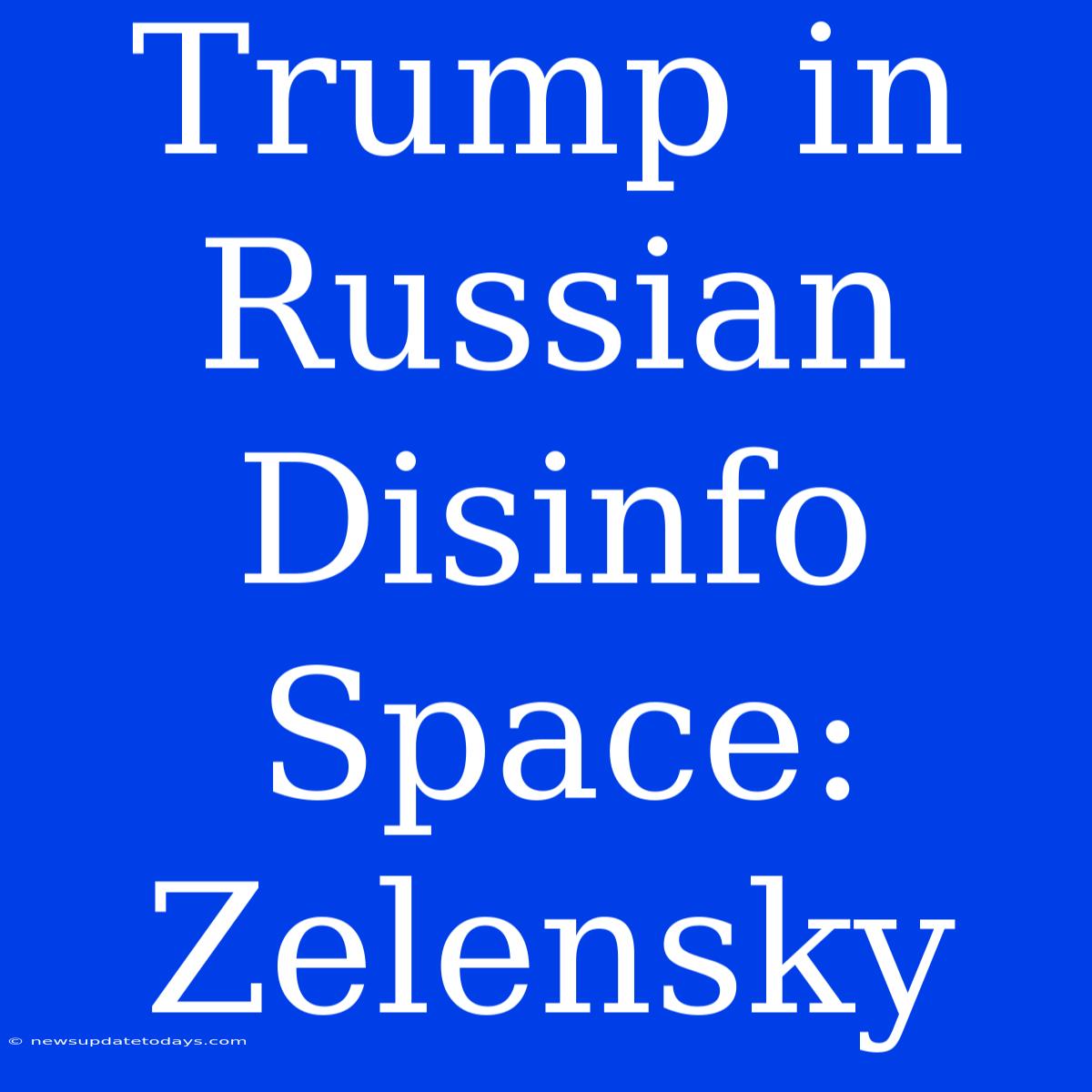Trump's Role in the Russian Disinformation Ecosystem: The Zelensky Angle
The intersection of Donald Trump, Russian disinformation, and Ukrainian President Volodymyr Zelensky presents a complex and concerning narrative. This article delves into the ways Trump's actions and rhetoric have been utilized and amplified within the Russian disinformation ecosystem, particularly regarding Zelensky. We'll examine the strategies employed, the impact on public perception, and the broader implications for geopolitical stability.
Trump's Narrative and its Exploitation by Russia
Since the beginning of the war in Ukraine, Russia has employed a sophisticated disinformation campaign aimed at undermining Western support for Ukraine and portraying the conflict in a favorable light. A key component of this strategy has involved leveraging statements and actions by Donald Trump. Russia's state-controlled media outlets and affiliated online actors frequently amplify Trump's criticisms of US aid to Ukraine, his questioning of NATO's effectiveness, and his generally positive rhetoric towards Vladimir Putin.
This isn't simply a matter of coincidence. Trump's pronouncements, often lacking in nuance and echoing Kremlin talking points, provide ready-made ammunition for Russian propaganda. By showcasing Trump's skepticism towards Zelensky and the Ukrainian government, Russia seeks to sow discord within the West and create doubts about the legitimacy of the Ukrainian cause.
Zelensky as a Target
Zelensky himself has been a primary target of Russian disinformation, frequently portrayed as a puppet of the West, a corrupt leader, or a figurehead for a Nazi-aligned government. Trump's criticisms, even when not explicitly echoing these narratives, inadvertently lend credibility to the Russian campaign. For example, Trump's past public questioning of Zelensky's integrity, however motivated, provides a convenient talking point for Russian propagandists seeking to discredit the Ukrainian president.
This strategy goes beyond simple amplification. Russian disinformation campaigns often manipulate and distort Trump's statements, taking them out of context or exaggerating their meaning to better fit their narrative. This creates a distorted reality where Trump's words, even unintentionally, become tools for undermining Ukraine's international standing.
The Impact on Public Perception
The effectiveness of this strategy is difficult to definitively measure, but there's significant evidence suggesting it has had a tangible impact on public opinion, particularly in countries already susceptible to pro-Russian narratives. The constant stream of disinformation amplified by influencers and bots blurs the lines between fact and fiction, creating confusion and distrust in established news sources. This erosion of trust is precisely the intended outcome of the Russian disinformation campaign.
Broader Implications
The manipulation of Trump's rhetoric within the Russian disinformation ecosystem highlights a dangerous trend: the potential for domestic political divisions to be weaponized by foreign actors. The consequences extend beyond Ukraine, impacting the stability of democratic institutions and the ability of Western nations to respond effectively to geopolitical challenges. Understanding how this strategy works is crucial to developing countermeasures and safeguarding against future attempts to exploit political polarization for malicious ends.
Keywords: Trump, Russia, disinformation, Zelensky, Ukraine, propaganda, misinformation, geopolitical, NATO, Putin, Kremlin, disinformation campaign, public perception, political polarization, foreign interference.

